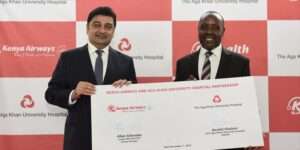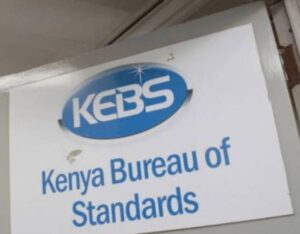The U.S Food and drug administration (FDA) has approved the worlds first medicine proven to prevent human immunodeficiency virus (HIV) developed by the pharmaceutical giant Gilead Sciences based in California.
The approval made on June 18th marks a huge step in the global fight against the epidemic that has claimed millions of lives over the past four decades. Twice in every six months, persons living in high risk for HIV can now take the medicine administered as an injection called Lenacapavir under the brand name Yeztugo.
Maker of the drug, Gilead Sciences announced that the twice a year injection drug was detected to dramatically reduce the risk of infection and also provide an almost total protection against the HIV contrary to the common primary option – pre-exposure prophylaxis or PREP, which has been used as a preventive drug for years and also involves taking daily pills or taking injection shots every two months of the medication
“Yeztugo could be the transformative PrEP option we’ve been waiting for, offering the potential to boost PrEP uptake and persistence and adding a powerful new tool in our mission to end the HOIV epidemic ,” DR Carlos Del Rio, a distinguished professor of medicine at Emory university school of medicine said in a Gilead news release.
ALSO READ: 𝐀𝐠𝐚 𝐊𝐡𝐚𝐧 𝐎𝐩𝐞𝐧𝐬 𝟓𝟒𝐭𝐡 𝐂𝐥𝐢𝐧𝐢𝐜 𝐢𝐧 𝐊𝐞𝐧𝐲𝐚
However, health advocates and global leaders are calling on Gilead Sciences to significantly reduce the price of its long-acting HIV prevention drug, lenacapavir, warning that high costs could hinder efforts to curb the global pandemic.
Lenacapavir, a twice-yearly injectable drug, has shown remarkable effectiveness in clinical trials, with near-perfect results in preventing HIV transmission. Yet with a current estimated cost of over $20,000 per person per year, experts fear the price tag places it far beyond the reach of most health systems.
“Even high-income countries will struggle to adopt this treatment widely at current prices,” said Dr. Andrew Hill of Liverpool University, whose research team found that lenacapavir could be manufactured for as little as $25 per year. “That level of pricing could enable true global access.”
In trials involving more than 2,000 women across sub-Saharan Africa, the injectable demonstrated 100 per cent effectiveness, outperforming Truvada, the standard daily pill currently in use. A second study among over 2,000 men and gender-diverse individuals recorded only two infections, a 99.9 per cent prevention rate.
While most side effects reported were mild, such as injection site reactions, headaches, and nausea, experts are hailing the results as a potential game-changer in HIV prevention.
Winnie Byanyima, UN Under-Secretary-General and head of UNAIDS, praised the innovation but emphasized the need for equitable access. “Lenacapavir could be the breakthrough we need to bring HIV infections under control,” she said. “But this will only be possible if the drug is affordable and available to all who need it.”
Gilead has yet to respond publicly to the latest calls for price reductions, though pressure is mounting from global health agencies and civil society organizations.






